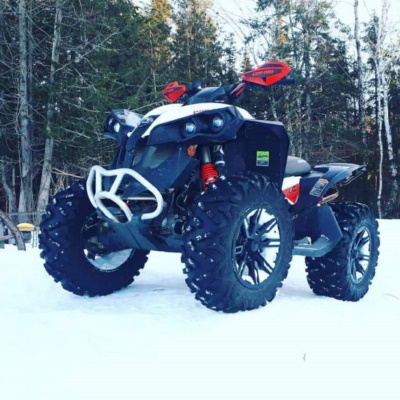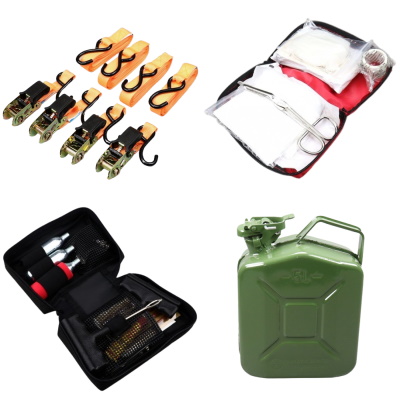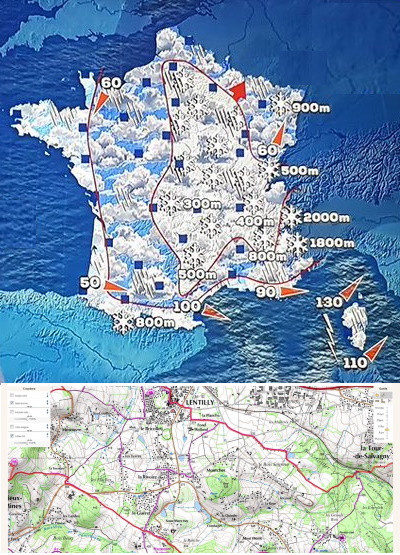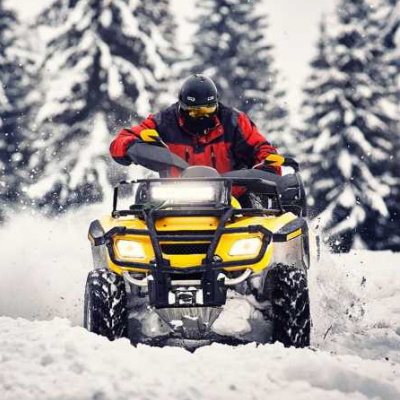
Make the most of your quad outings during the winter
The practice of the quad is of any season. Nevertheless, depending on the season, you should prepare your quad so that the pleasure is not spoiled par mere negligence or oversight. In winter, quad biking requires more planning and preparation than during other seasons. Don't forget that the snow disturbs our perception of the reliefs by immaculate the landscape.
Before the exit, the preparation

The machine
The quad requires complete maintenance: air filter, levels of coolant and oil. On this subject, a change for a more fluid oil (type 5) more efficient par cold weather.
Full of petrol, well-charged battery, lubrication (to prevent the formation of ice and humidity on certain parts of the quad.
Cleaning the fan and the radiator. In winter, the machines are more stressed and heat up more quickly. Verified lighting will eventually be supplemented par un complementary system (short days).
If the quad is fitted with one, the winch must also be checked.
Particular importance must be given in the choice of tires. Select one model with large cleats Big Horn type. Tires adapted to winter conditions will ensure better traction and better braking.
It is very important to have the right pressure. In winter and on snow, it is recommended to lower the pressure by about 100 grams. Regardless of the type of tire chosen, it is better to keep the pressure lower to obtain more grip.
Equipment to take away
Here's what we recommend you bring: webbing, shovel, survival blanket, first aid kit, tire repair kit, fuses, tape, cable ties, drinking water. Remember to plan a jerry can. Driving on snow significantly increases fuel consumption. Snow is energy intensive…
For the rider and passenger's equipment: helmet, heated grips, waterproof gloves and undergloves, boots... It must be waterproof and warm, so wear layers!
More tips and information onpilot equipment in winter.


Route planning
It is essential to know the terrain before venturing into it. Snow alters the perception of nature, with its obstacles and dangers. You have to know the area to get your bearings.
A consultation of the local weather forecast after different sources provides useful information.
It is strongly advised to be accompanied in order to limit the risks.
If the outing is planned over several hours, consider scheduling a "comforting" stopover around a hot drink.
The driving
Before knowing how to ride on ice, you have to know how to spot it. The ice forms mainly early in the morning and at nightfall, even if it is not uncommon to find patches of ice in the middle of the day. It covers the road with a film almost invisible to the naked eye. By day, it is possible to notice it thanks to the reflections of the sun on the icy area. At night, the lights of the car are not enough to locate it. Roads in the shade, such as when approaching an undergrowth, are subject to ice. Other areas conducive to the formation of ice: on and under bridges. If the temperatures are low, be particularly vigilant if you take these routes.
The driving conditions, in the cold, under and on the snow, on the icy ground require extreme vigilance. It is the density of the snow that indicates the conduct to be adopted. On snowy roads, responsible driving is required.
Anyway, anticipation remains the key word. The 4x4 quads are preferred for better traction. No sudden acceleration. Choose low range especially on climbs. On descents, to limit the speed gain, use the engine brake.
More than ever, respect the safety distances.
For braking on ice or hard snow, the ideal is to brake in line, above all not to turn then brake (at the risk of starting to slide). Braking will also be anticipated, no late braking.
Our advice: the temperatures are often negative, remember to apply the brakes. Warm them up… In fact, it too often happens that after passing through a puddle, frozen water blocks the brake calipers.

Snow chains
You consider the use of tire chains ? You are a quad driver and fancy the challenge of extreme winter trails, you may need tire chains to make your adventures successful. Similar to those used by tractor-trailer drivers to ensure their own safety, that of their vehicle and that of other drivers, the chains provide additional maneuverability in otherwise difficult terrain. ©licates, which helps you avoid getting stuck. Remember that slick tires and slush don't mix.
After your outing, remember that snow and ice will melt and water promotes the formation of rust. A good cleaning followed by a good drying and lubrication are essential.











